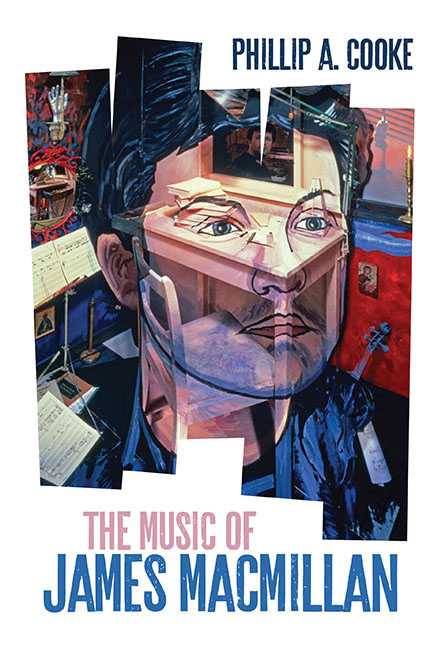Book contents
- Frontmatter
- Contents
- List of Plates
- List of Tables
- List of Music Examples
- Foreword
- Prologue
- Acknowledgements
- Permissions
- 1 The Keening – Cumnock, Edinburgh and Durham
- 2 The Tryst – Glasgow and the Road to Isobel Gowdie
- 3 Scots Songs – The Confession of Isobel Gowdie, Tuireadh and Veni, Veni, Emmanuel
- 4 A Different World – Visitatio Sepulchri, Seven Last Words from the Cross and Inés de Castro
- 5 Changed – Triduum and Quickening
- 6 Raising Sparks – ‘Scotland's Shame’, Politics and A Scotch Bestiary
- 7 A New Song – Mass and MacMillan 's Choral Renaissance
- 8 After Virtue – Symphony No. 3, The Sacrifice and the St John Passion
- 9 Serenity – Violin Concerto, Clemency and the St Luke Passion
- 10 Tu es Petrus – Bellahouston Park and the Return to Cumnock
- List of Works and Recordings
- Bibliography
- Index of Works by James MacMillan
- General Index
10 - Tu es Petrus – Bellahouston Park and the Return to Cumnock
Published online by Cambridge University Press: 31 August 2019
- Frontmatter
- Contents
- List of Plates
- List of Tables
- List of Music Examples
- Foreword
- Prologue
- Acknowledgements
- Permissions
- 1 The Keening – Cumnock, Edinburgh and Durham
- 2 The Tryst – Glasgow and the Road to Isobel Gowdie
- 3 Scots Songs – The Confession of Isobel Gowdie, Tuireadh and Veni, Veni, Emmanuel
- 4 A Different World – Visitatio Sepulchri, Seven Last Words from the Cross and Inés de Castro
- 5 Changed – Triduum and Quickening
- 6 Raising Sparks – ‘Scotland's Shame’, Politics and A Scotch Bestiary
- 7 A New Song – Mass and MacMillan 's Choral Renaissance
- 8 After Virtue – Symphony No. 3, The Sacrifice and the St John Passion
- 9 Serenity – Violin Concerto, Clemency and the St Luke Passion
- 10 Tu es Petrus – Bellahouston Park and the Return to Cumnock
- List of Works and Recordings
- Bibliography
- Index of Works by James MacMillan
- General Index
Summary
If ‘Scotland's Shame’ was the major political, theological and personal moment of crisis in James MacMillan's creative life, then the Papal visit of Pope Benedict XVI to the United Kingdom in September 2010 was a definite second crisis, again leading to much soul-searching, introspection and questioning of the composer's relationship with his homeland and the church, and of the very essence of himself as an artist in contemporary society. For although the visit of Benedict ultimately passed with little controversy (there was much grumbling in the left-leaning press in the run-up to the event, particularly the funding of the visit), MacMillan's involvement and the preceding ill-feelings that were engendered have left another indelible mark on the composer which continues to be felt to this day.
The state visit was the first by a pope since Pope John Paul II's visit to the UK in May 1982 and was a hugely significant moment, not just for Britain's Catholic community, but for all religious faiths and denominations, leading to much publicity and scrutiny throughout the media and wider society. Benedict held meetings with all the major political leaders, the Queen and the Archbishop of Canterbury during a four-day visit that saw open-air masses in Glasgow and Birmingham and a mass in Westminster Cathedral, the centre of Catholicism in England. The visit also saw the beatification of Cardinal John Henry Newman, one of the leading Catholic theologians of the nineteenth century and a key figure in the resurgence of the Catholic Church during that period. As the country's most prominent Catholic composer, it was no surprise that MacMillan was involved in various musical events during Benedict's visit, and he provided two new works: the anthem Tu es Petrus, for brass, organ, percussion and choir and the congregational Mass of Blessed John Henry Newman that was first performed in the open-air mass at Bellahouston Park, Glasgow that welcomed the Pope to Scotland. It was the latter of these two works that caused the greatest controversy for both composer and religious community.
As with events in 1999, MacMillan's exploits made the news in certain quarters in Scotland, this time regarding the suitability of his new setting for the Papal mass.
- Type
- Chapter
- Information
- The Music of James MacMillan , pp. 205 - 216Publisher: Boydell & BrewerPrint publication year: 2019



